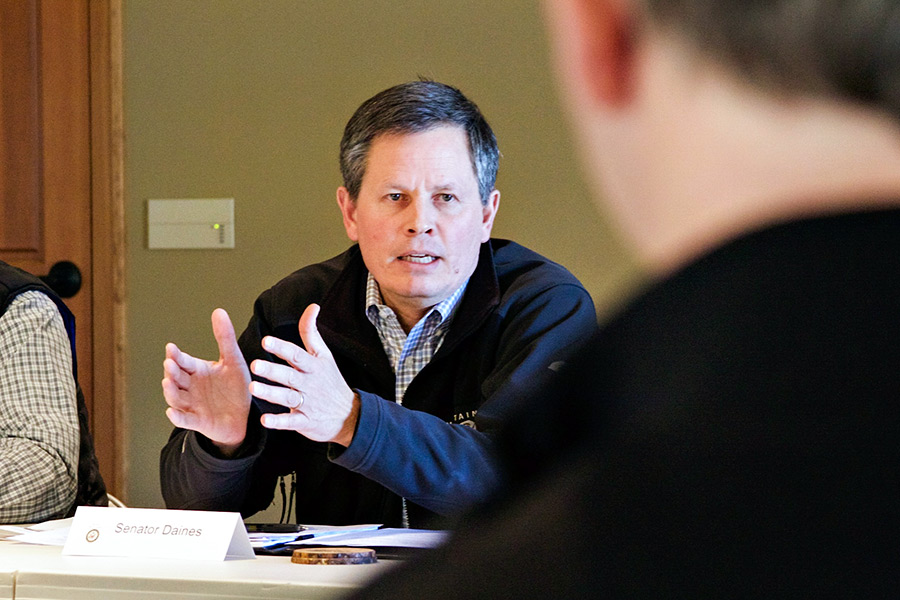CHEYENNE, Wyo. — Senators from Western coal states questioned Interior Secretary Sally Jewell on Tuesday about the need for a three-year moratorium to review the federal coal leasing program, describing it as an assault on the industry.
Jewell defended the moratorium as necessary to ensure taxpayers get a fair return on the resource amid low coal prices. Many factors including competition from cheap and cleaner-burning natural gas are affecting coal demand and prices, she told the Senate Energy and Natural Resources Committee.
“I recognize the industry is struggling right now for a variety of reasons,” Jewell said. “But we have been criticized roundly for not generating a fair return for taxpayers — not having any competition in the leasing process for coal. ”
Nearly 40 percent of the nation’s produced coal comes from huge open-pit mines in the Powder River Basin in northeastern Wyoming and southeastern Montana. Most of that coal belongs to the federal government.
The moratorium announced in January has been part of a recent run of bad news for the West’s coal industry, including bankruptcy filings by major mining companies Arch Coal and Alpha Natural Resources.
Environmentalists have long been critical of the U.S. Bureau of Land Management’s lease-by-application process in which coal companies nominate new tracts to be mined. The coal tracts go up for bid, but they seldom draw more than a single bid submitted by the nominating company operating an adjacent mine.
Leasing has slowed to a trickle since 2012, and higher royalties could drive already low demand for coal to zero, said Sen. John Barrasso, R-Wyoming.
“Doesn’t it seem to you that if the demand goes to zero, that the revenue coming in is going to go to zero as well for the government?” he asked Jewell.
Coal companies already are paying very low prices for federal coal, as little as $1 a ton or less, Jewell pointed out.
“As a businessperson, you recognize that there is a cost to your business and you factor all of those costs in and that determines whether or not you go forward,” she said. “The cost of coal royalties is only one component in the overall cost that, if I was a mining company, I would be looking at.”
Sen. Steve Daines, R-Montana, called the moratorium a direct assault on his state. “Coal production creates good-paying union and tribal jobs and affordable electricity prices. Yet, this administration seems committed to taking that lifeline away,” he said.
The social cost of coal-fired electricity, which includes the effects of global climate change, demands a different approach to coal leasing in the U.S., said Sen. Maria Cantwell of Washington, the committee’s ranking Democrat.
“We cannot continue with business as usual. The cost to the taxpayers and the public do not match. We cannot continue to lease coal for $1 a ton and collect another $1 in royalties when the cost to society is about $70 a ton,” she said.
